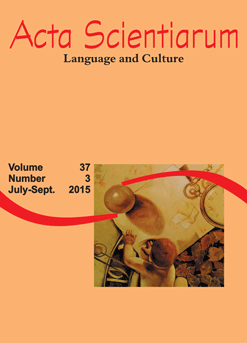<b>The Discursive Representation of Dictatorship in Lygia Bojunga’s <i>A casa da madrinha
Résumé
The children’s novel A casa da madrinha [The Godmother's House], by Lygia Bojunga (2002), published in 1978, incorporates libertarian ideals of the children’s and youth production of that decade. Its plot breaks with the tradition of euphoric literary production around the 1940s and 1950s, intended to children and young people, talks about taboo subjects like abandonment of minors and child labor, bringing to the center an inhuman social reality in which children and youths are neither protected nor supported or respected, having their rights disregarded. This justify, thus, the objective of this text, which is to analyze how these ideals are configured in the discursive representation of said work, considering that it was published during a military dictatorship.
Téléchargements
DECLARAÇÃO DE ORIGINALIDADE E DIREITOS AUTORAIS
Declaro que o presente artigo é original, não tendo sido submetido à publicação em qualquer outro periódico nacional ou internacional, quer seja em parte ou em sua totalidade.
Os direitos autorais pertencem exclusivamente aos autores. Os direitos de licenciamento utilizados pelo periódico é a licença Creative Commons Attribution 4.0 (CC BY 4.0): são permitidos o acompartilhamento (cópia e distribuição do material em qualqer meio ou formato) e adaptação (remix, transformação e criação de material a partir do conteúdo assim licenciado para quaisquer fins, inclusive comerciais.
Recomenda-se a leitura desse link para maiores informações sobre o tema: fornecimento de créditos e referências de forma correta, entre outros detalhes cruciais para uso adequado do material licenciado.




















6.png)









